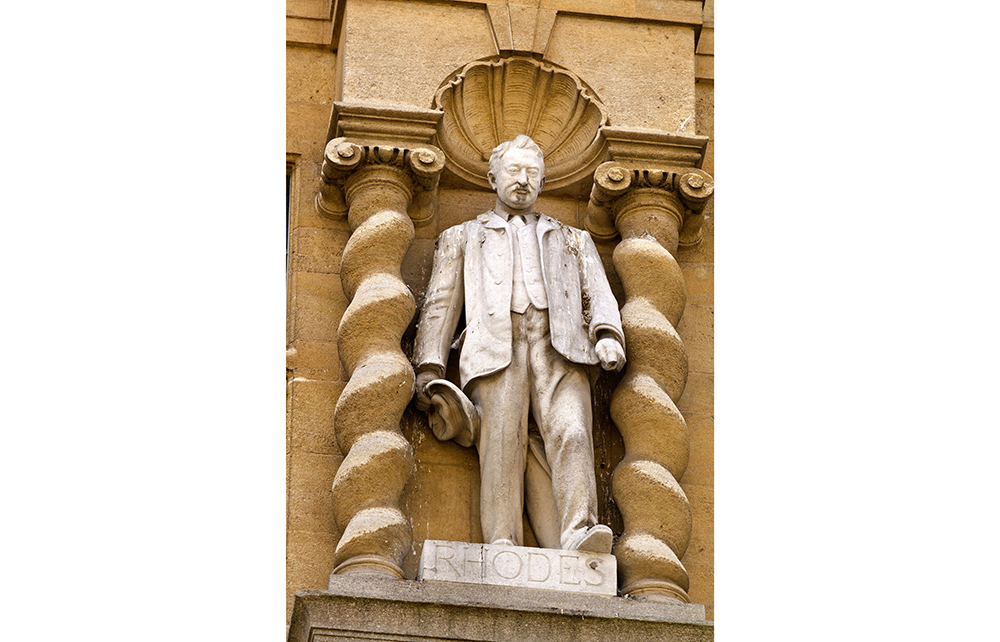The first problem about decolonisation is the word itself. Colonisation is the process of establishing control over a foreign territory and its indigenous inhabitants, by settlement, conquest or political manipulation. But decolonisation? It has come to mean much more than the reversal of that process. Today, it refers to an altogether wider agenda, whose central objective is to discredit or downgrade the cultural achievements of the West. Objective truth and empirical investigation are mere western constructs. They are optional ideas which need have no weight beyond the western societies which invented them. But the West has imposed them on the rest of the world by a process akin to the colonial conquests of the past four centuries.
In New Zealand, this attitude to truth has led to a revised school syllabus in which Maori folk beliefs about the world are to be treated as if they were just as valid as the body of empirical knowledge that is called science everywhere else. However, we do not need to go to New Zealand to see intellectual decolonisation in action. University faculties in Britain are all expected to publish ‘decolonisation statements’ filled with guilt and angst about the western origin of so much modern knowledge.
The main objection to decolonisation is not that it is false but that it is narrow-minded, obsessive and intolerant
Oxford University’s Mathematical, Physical and Life Sciences Division may seem an unpromising candidate for decolonisation, but its decolonisation statement attacks the whole concept of knowledge. ‘As we work towards greater inclusion’, it declares, ‘we need to have a broader understanding of what constitutes scientific knowledge.’ Among other things, this is said to involve ‘challenging western-centric ideas of “objectivity”, “expertise” and “merit” ’, and ‘removing structural hierarchies that privilege certain knowledge and certain peoples over others’. The instinct behind statements like these is not scholarly or scientific. It is political. It devalues knowledge by redefining it, as a way of protesting against the endemic sense of racial superiority which is said to characterise British society.
Doug Stokes is based at the University of Exeter, an institution whose history department proclaims on its website that ‘the very ways we are conditioned to look at and think about the past are often derived from imperialist and racialised schools of thought’. His new book, Against Decolonisation, is a powerful protest against this kind of stale cliché.
Stokes challenges the dominant cultural and political narrative which portrays Britain as endemically racist. Racial prejudice is too natural to human beings to be eliminated entirely, but statistical studies suggest that by most measures Britain is one of the least racist societies in Europe. The Prime Minister, the Foreign Secretary and the Mayor of London all come from minority ethnic groups. British universities, including the most selective, have a student population in which ethnic minorities are well represented at every level of academic attainment.
Stokes digs deeper into the figures, to show that ‘ethnic minorities’ is too large and varied a category to serve as a useful instrument of analysis. There are significant differences between racial groups. And all of them do significantly better than the category that persistently loses out on university education, namely poor white males.
These points have been made before, notably in the March 2021 report of the Commission on Race and Ethnic Disparities. The report concluded that economic geography, socio-economic background and family values were far more significant determinants of outcomes than racism. As it pointed out, the life chances of the child of a Harrow-raised British Indian accountant were very different from those of the child of a Bradford-raised British Pakistani taxi driver. Both of them had better prospects than ‘low income white boys, especially those from former industrial and coastal towns’. The Commission’s report was received with howls of outrage by those who felt that they were being deprived of their victimhood. But the objectors rarely engaged with the detailed supporting data on which it was based.
Although the points which Stokes makes are not new, they have rarely been made with such verve and force as they are in this succinct demolition of modern decolonisation theory. He is particularly critical of the reports of the Equality and Human Rights Commission, which he accuses of dodgy statistical analysis, and Universities UK, the representative body of vice-chancellors, which has uncritically imposed a decolonisation agenda on the whole university sector.
How did we come to this pass? Stokes argues that the narrative of embedded (‘institutional’) racism in western societies was adopted to fill the intellectual gap left by the decline of Marxism. Cultural control replaced class oppression as the mechanism by which the capitalist West was said to maintain its dominant role in the world. The chief prophets of this doctrine were the French postmodernist philosopher Michel Foucault, one of the most influential thinkers of the 20th century, and the Palestinian-American historian Edward Said. Foucault taught that the structures of power determine what is generally perceived to be true. What we think we know is actually no more than an artificial consensus created by our invisible control over schools, universities, publishers and museums and other cultural institutions in our own interest. It followed that to change the world, it was necessary to take control of those institutions and impose a new intellectual consensus. Said took this idea further. The notion of the inherent superiority of western science and culture, he argued, was a new form of colonialism. It enabled the West to maintain its dominance long after it had shed its colonies. Yet western ideas, western science and western history had no objective claim to authority. They were simply the products of western power structures.
These ideas have never had much traction in France, the land of their birth. But they have taken root in Britain and America in the minds of many who have never read Foucault or Said. In Britain, race theorists such as Kehinde Andrews, Professor of Black Studies at Birmingham University, have argued that the claims made for western culture are a form of racial prejudice. They are an assertion of the inherent superiority of whites over people of colour which is hardwired throughout British society. This kind of thinking, says Stokes, is what lies behind the obsession with race that is currently transforming British universities.
The problem about postmodernist theories is the same as the problem about other forms of determinism. They underestimate the originality of the human mind. They also ignore the universality of abstract ideas. The fact that Aristotle or Einstein first articulated an idea does not make it a ‘western’ idea. If some statement about the world is true in New Zealand or Africa, it must be equally true in Britain or America, or it is not true at all.

However, the main objection to decolonisation is not that it is false but that it is narrow-minded, obsessive and intolerant. People will continue to disagree about the prevalence and the origin of racial prejudice. Error and discord are inevitable hazards of the free market in ideas. But the decolonisers are not just trying to defend their views. They are seeking to upend the free market in ideas by imposing them. This is a natural consequence of their approach to intellectual inquiry. For those who believe that knowledge and truth are mere social constructs there is no point in debate. Alternative visions of the world are just the product of social conditioning. Social change and suppression of dissent are the only answers. Schools and universities must be the battlegrounds. Hence the obligatory decolonisation statements, the imposition of a highly controversial agenda on the syllabus, the no-platforming of opponents and the real fears of so many academics that if they step out of line their careers will be blighted.
These are symptoms of the narrowing of our intellectual world, even in the citadels of the mind which should be its foremost defenders. Perhaps books like this one will encourage more academics to summon up the courage to resist the bullying and to challenge the new conformity. Not everyone will agree with them. But everyone who truly cares about truth will welcome the opening up of a debate which the universities have largely foreclosed.






Comments